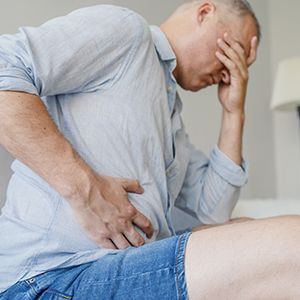13 reasons you may need to see a urologist.

Urology is one of the most misunderstood specialties in medicine. Some think only men need to see urologists, and many have no idea what urologists do at all — until their primary care doctor refers them to one.
Part of the confusion stems from the wide variety of conditions urologists treat. Urologists treat men, women and children for ailments ranging from simple urinary tract infections to life-threatening cancers.
In general, urologists treat conditions affecting the urinary tract and male reproductive system:
Men’s conditions
- Enlarged prostate (Benign Prostatic Hyperplasia
- Prostatitis (infection of the prostate)
- Prostate cancer
- Low testosterone
- Erectile dysfunction (impotence)
- Peyronie’s disease (curvature of penis)
Women’s conditions
- Bladder prolapse
- Urinary tract infections (men can get a UTI, but it is less common). Children can also be affected by urinary tract infections.
- Interstitial cystitis (also known as bladder pain syndrome, or BPS). Men can also be affected by this condition, but it is far more common in women.
Conditions affecting both men and women
- Overactive bladder
- Urinary incontinence
- Kidney stones
- Kidney cancer
- Bladder cancer
Signs and symptoms
While symptoms vary with each of the above conditions, in general, these symptoms are warning signs that a urologist’s help may be needed:
- Difficulty urinating
- Pain/burning with urination
- Frequent need to urinate
- Fever
- Pelvic pain
- Lower abdominal pain
- Sharp pain in side
- Blood in urine (also called hematuria)
- Nausea/vomiting
Healthy habits for urologic health
Now that you know when to see a urologist, here are a few tips to help you avoid them!
- Drink plenty of water. Dehydration can increase your risk for both urinary tract infections and kidney stones.
- Eat bladder-friendly foods. Bananas, nuts, eggs, green beans and whole grains all contribute to bladder health.
- Avoid bladder-irritating foods. If you have a sensitive bladder, avoid citrus fruits, alcohol, spicy foods and artificial sweeteners.
- Eat a healthy diet. A healthy diet that features lots of fruits and vegetables and few processed foods will improve both your urologic health and overall health.
- Don’t smoke. Smoking is the #1 cause of bladder and kidney cancer and increases your risk for other cancers as well. If you need help quitting, see your doctor, and check out these resources from the American Cancer Society.
- Men: See a urologist yearly for prostate cancer screening.
Regular checkups with your primary care physician are important for your urologic and overall health. To find a Covenant physician or urologist, go to https://www.covenanthealthcare.com/ch/find-a-physician.
Posted Date: 7/8/2020